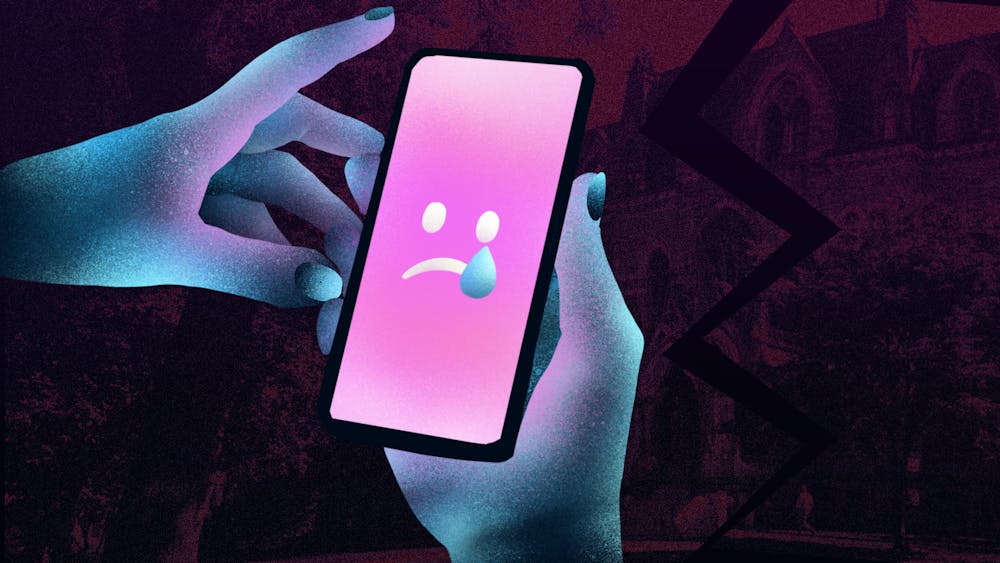I downloaded Sidechat this fall after my friends sent me too many screenshots of funny memes or jokes posted on the anonymous app. I figured that doing so would simply remove the middleman. I was already being exposed to the same jokes, memes, comments and judgements as those on the app anyway … right?
In December, I returned home for reading days and fell into an easy pattern of studying. Nothing I did was wildly exciting or social, but I instead found myself enjoying the routine and satisfaction of productivity. During my study breaks, I would scroll on Sidechat — and from the comfort of my home, I felt myself spiraling into anxious dread about returning to Penn. Each time I opened the app, I was faced with a barrage of posts all echoing the same sentiment: Penn is awful and depressing. Without a second thought, I accepted those posts as fact, and in doing so, I allowed Sidechat to have more power than it deserves. In other words, I subscribed to the complaining culture that is pervasive on Sidechat.
Using Sidechat, especially without intentional thought, is a way of looking at Penn through hypercritical glasses. Perhaps this is because negativity has been normalized and cynicism gets more upvotes. To some extent, this pessimistic messaging is diluted with the insertion of mildly entertaining memes or jokes, but the result is still the same. With each scroll, Sidechat is perpetuating a defeatist perspective of Penn.
So, I arrived back at Penn to take my final exam: openly unhappy about returning to what I thought would be a bleak campus as a result of discourse on Sidechat. But to my surprise, it was not horrific, and I was able to enjoy my weekend of studying just as I had my week at home. The sheer volume of disheartening posts on Sidechat had clouded my perspective and ability to see the best in the situation. Sure, I was becoming one with a Huntsman GSR while others were at home enjoying break, but on the other hand, I was with my friends and able to have a sleepy campus all to myself.
As is the case with most other social media platforms, Sidechat is consumed passively and without a second thought — it’s used to pass time, curb boredom, and satiate our addictions to our phones. And yet, students are absorbing and internalizing content more quickly than they can truly digest it.
Given the bandwagon culture on Sidechat, users often build off of one another, creating a chaotic, and often dismal, echo chamber that does not truly represent life at Penn. Whether or not college is the best four years of your life, it is at least what you make of it, and Sidechat enables students to feel like victims of an unknown cause. For those who are actually struggling, Sidechat acts not as a productive outlet, but rather as a meta ether that provides no remedy other than the satisfaction that others are unhappy too.
Since winter break, I have in fact deleted Sidechat and am all the better for it. I still get sent the best and the brightest jokes by my friends, but I am no longer overwhelmed by unsolicited complaints on an hourly basis. Without Sidechat, my thoughts on the housing lottery, the floods in the Quad, and upcoming midterms are completely my own. Deleting Sidechat may not be for everyone, but it’s imperative for those who chose to use Sidechat to take a more critical view of what is being circulated and evaluate whether or not they are benefiting from it. It may just change the way they see Penn.
ELIZA CARROLL is a College first year studying international relations and art history from Greenwich, Conn. Her email is elizakc@sas.upenn.edu.









